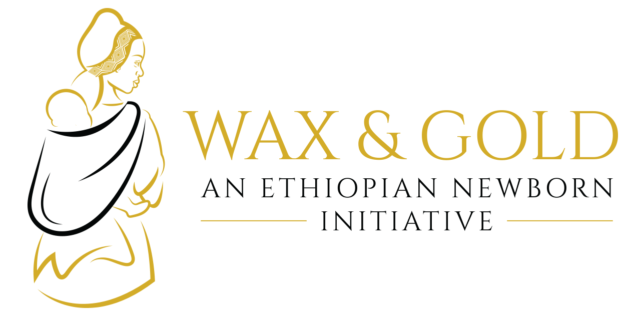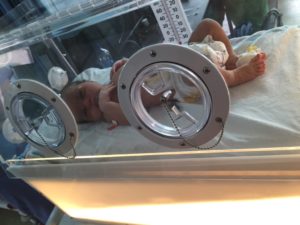Certificate programs
Neonatal Advanced Life Support and Transport Program: A 12-month program that equips trainees with the knowledge and skill to stabilize, resuscitate, and safely transport newborns within or between facilities to prevent death or neurological damage from oxygen deprivation. The curriculum includes didactics, simulation training and more than 120 hours of hands-on experience in the delivery room with one-on-one preceptorship. SPHMMC, Werabe Hospital and Kolfe Health center have implemented this service and St. Paul’s Hospital has seen remarkable improvement in newborn outcomes since the implementation of the service. We have trained and certified the first 22 candidates in Ethiopia. Our work has been presented to key leaders in neonatal care at the Vermont Oxford Annual Quality Congress in October 2017 and September 2018 and recently at the Pediatric Academic Society (PAS) meeting in May 2019.
Post Master’s Certificate in Nursing Education: A 12-month program based on the WHO core curriculum for nurse educator and designed to prepare candidates to perform in an advanced nursing role to design and launch new curriculum, and teach skills required to ensure safe and high-quality care. These advanced practice nurses are experienced clinicians who will continue to work in the clinical setting, providing a standardized education for on-boarding new NICU staff. The first candidate in Ethiopia will be certified in Sept. 2019.
Orientation and Training Programs
Specialized Neonatal Intensive Care Nursery Nursing Orientation Program: A 17-week orientation program that ensures every NICU nurse receives up-to-date evidence-based standardized training to provide safe and high-quality care to all newborns. The program includes a one-on-one preceptorship with an experienced NICU nurse, as well as lectures, videos, simulation training, and hands-on training at the bedside. The first 10 candidates are currently being oriented.
Simulation Training: Patient simulation training allows learners to develop, refine and apply knowledge and skills in interactive learning experiences that mimic realistic clinical situations. Learners participate in simulated scenarios using realistic plastic human models, without risk of harm to a live patient. This provides a safe place to perfect bedside technique, practice a clinical skill or improve communication with patients and other professionals. This teaching strategy can help improve patient safety and outcomes by building skills learners carry with them into real patient care. Our work was recently presented at the 11th International Pediatric Simulation Symposia & Workshops in Toronto in May 2019.
Mentorship
In health care settings with limited resources, consistent and repetitive didactic and clinical skills instruction can lead to sustained improvement in care. With continued support and training, these professionals can apply and build on what they have learned, to grow in their careers, train others and further increase the number of healthcare professionals skilled in advanced neonatal care. That’s why Wax & Gold is committed to “low dose” but repetitive reinforcement and continuous mentorship for:
- Pediatric residents
- Pediatricians
- Neonatologists
- NICU nurses
- Nurse educators
- Neonatal advanced life support providers
- Biomedical engineers and technicians
Degree Program
Master of Science in Respiratory Care: Respiratory care providers are vital members of the multidisciplinary medical team in any health care system. Currently, Ethiopia does not have a single training program in the field of respiratory therapy. SPHMMC is a federally designated Center of Excellence and a training facility for different Healthcare disciplines. its leadership has identified a Respiratory Care training program to be vital. As a result, we are collaborating with SPHMMC to develop a Master of Science in Respiratory Care curriculum. This is a two-year program based on the standards of the American Association of Respiratory Care (AARC) and the Commission on Accreditation for Respiratory Care (CoARC) here in the USA. In June of 2019, our volunteer team of Respiratory Therapists (RT) and educators accompanied by the Director of the Nursing and an educator from SPHMMC visited the RT program at the University of Ghana in June. This allowed the SPHMMC team to see an established RT program in a resource limited setting. This exposure was pivotal in establishing the foundation for a solid and sustainable program.
Facility Improvement and NICU Design
- SPHMMC NICU Design
Implementation Research and Development
Locally Manufactured Phototherapy Lights: In collaboration with neonatal team members at SPHMMC, Wax and Gold has received an Innovation Grant from SPHMMC to conduct a pilot trial using locally assembled phototherapy equipment used in the treatment of Neonatal Jaundice.
Locally Manufactured transport Infant Incubator: Sick newborns are at the highest risk for getting extremely cold during transport from their place of birth to the hospital or within the hospital increasing their likelihood of dying. Transport incubators are utilized to provide a safe and warm environment for the sick and premature newborn. This basic equipment is considered a luxury item for almost all NICUs in Ethiopia. To alleviate this difficulty, we are collaborating with Baltimore Kiwanis Incubator Foundation http://bkif.org/ to introduce a locally manufactured infant transport incubator.
Locally manufactured Continuous Positive Airway Pressure (CPAP) machine: CPAP has been in use throughout NICUs for over 50 years and has been shown to reduce mortality up to 50% in neonates with respiratory distress syndrome. CPAP can be delivered several ways, but many machines are prohibitively expensive and difficult to maintain in low resource settings (LRS). We have designed a simple bubble CPAP device that can be built and repaired by biomedical engineers and clinical providers in LRS. Developed by Dr. Ryan Carroll with the Consortium for Affordable Medical Technologies, with end-user feedback and engineering expertise in Uganda and India, the first prototype was delivered to the biomedical and medical teams at the Saint Paul Hospital Millennium Medical College in May 2019.

Designed by: Ryan W. Carroll, MD, MPH (rcarroll4@mgh.harvard.edu)

